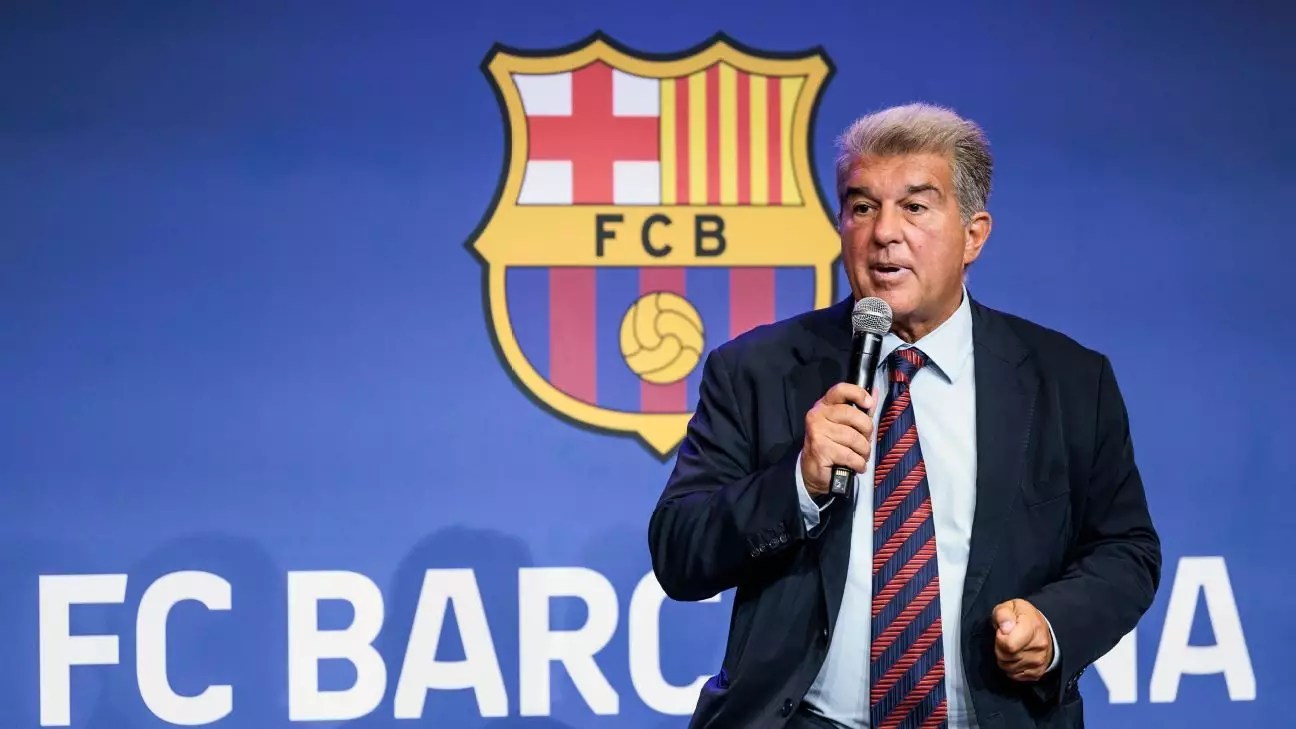The turbulent times unfolding within FC Barcelona raise significant questions not only about the sporting decisions but also the overall governance of the club. With key opposition groups publicly demanding the resignation of President Joan Laporta, the football world watches closely to see how this unfolding saga impacts one of the most iconic institutions in football.
Recent events surrounding the failed registrations of players Dani Olmo and Pau Víctor have acted as the catalyst for a flurry of dissent. Ten different political factions—including prominent groups like Sí al Futur, led by Victor Font, and Som un Clam, headed by Joan Camprubí Montal—have united to voice their discontent. They accuse Laporta’s administration of negligence, a claim that portrays a stark picture of the internal strife isn’t just limited to on-pitch performance but also relates to broader operational shortcomings within the club.
Laporta, whose mandate extends until 2026, faces serious scrutiny as fans express their frustrations. The inability to secure the registration of Olmo and Víctor is not just a minor bureaucratic hiccup; it symbolizes systemic failures in the club’s management of both talent and finances. Those discontent with the leadership argue that this situation exemplifies a deeper incompetence, characterized by unclear communication and poor crisis management, particularly when it comes to regulatory issues like LaLiga’s Financial Fair Play (FFP).
In addition to the failed registrations, other contentious issues have emerged that further cloud Laporta’s leadership. The financial dealings involving the renewal of the partnership with kit supplier Nike have drawn criticism, particularly the commission paid to third parties. This raises questions about transparency and decision-making within the club when managing lucrative commercial partnerships.
Moreover, the decision to close the singing section at the Olympic Stadium has strained relations with supporters. Such a move speaks volumes about the chasm between management and the fanbase, presenting an image of a leadership that does not prioritize the community’s voice. The controversial €100 million ($104.2 million) sale of VIP seats, tied to Camp Nou’s renovation over the next 20 years, further complicates Laporta’s tenure. It is an indicative representation of how financial decisions can have far-reaching consequences on club culture and the supporter experience.
As tensions mount, the opposition groups have pondered the possibility of organizing a vote of no confidence against Laporta. This maneuver, if successful, might open the door for a significant shift in the governance of FC Barcelona. Such unprecedented actions highlight that unresolved grievances are bubbling beneath the surface, indicating that the opposition is prepared for drastic measures to restore credibility and vision within the club.
In a desperate attempt to rectify the situation, FC Barcelona has formed a game plan, with appeals aimed at the Consejo Superior de Deportes (CSD), Spain’s highest sports court. The club’s management believes that force majeure plays a pivotal role in explaining the missed registration deadlines. They argue that the delayed sale of VIP boxes should allow them to meet the necessary registration criteria, emphasizing the notion that external factors contributed to the crisis.
Nevertheless, the reality for players Olmo and Víctor remains precarious. While contract clauses allow for exits if they are unable to register, both players currently maintain their focus on resolution rather than considering departures. This speaks to the trust in the club to navigate its way through these turbulent waters, but indicates underlying concern about the club’s long-term stability.
With all eyes on Barcelona’s leadership, the stakes have never been higher. The current crisis serves as a reminder of the intricate relationship between financial prudence, player management, and a respectful dialogue with supporters. If Laporta’s administration cannot address these multifaceted challenges effectively, the push for governance change will likely only intensify.
As the Catalan club prepares to appeal and strive for a prompt resolution, the unfolding drama holds consequences for its brand reputation, financial status, and overall operational integrity, not to mention its aspirations on the pitch during critical matches like the upcoming Spanish Supercopa. In this period of scrutiny, Barcelona may be at a crossroads in redefining its future both as a club and a community.


Leave a Reply